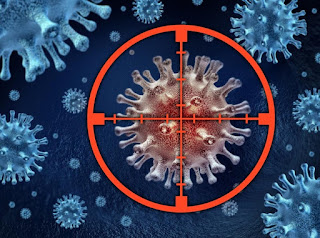Asbestos is the only confirmed cause of mesothelioma.

While the causes of many types of cancer remain unknown, that is not the case with mesothelioma. Up to 85% of all diagnosed cases of mesothelioma can be definitively linked to exposure to asbestos. For decades, concerned doctors and research scientists speculated about the dangers of asbestos and warned industries to discontinue its use, but a conclusive link wasn’t actually made until 1999, when it was too late for the millions around the world who had already suffered prolonged exposure to the dangerous mineral.
How Asbestos Makes You Sick
Asbestos is a naturally-occurring mineral that possesses excellent insulating and heat-shielding properties. Because of this, it has long been used in a variety of products, including building materials like insulation, gaskets, floor and ceiling tiles, and drywall tape, as well as in automotive products such as brake pads and shoes and clutch plates.
Asbestos is not dangerous when left undisturbed. In fact, scientists estimate that asbestos occurs naturally in our air and drinking water and that everyone breathes in the mineral at some time or another. However, when asbestos is damaged and becomes “friable” – soft and weak – it is more easily airborne, and hence, inhalation can occur more easily.
People who worked with asbestos that was cut, crushed, sanded, torn, or otherwise manipulated were prone to inhaling these dangerous fibers. Prior to the asbestos warnings of the 1970s, individuals who worked with asbestos were given little or no protective gear, even though it has been proven that experts have known about the dangers of asbestos for more than a century and warned industries of the risks.
Usually, those exposed to asbestos on a regular basis do not get sick immediately. As a matter of fact, asbestos diseases often do not appear for 20-50 years after exposure. However, a handful of workers who were first responders at the World Trade Center disaster in 2001 have already died of mesothelioma due to extreme exposure to the material.
Asbestos fibers that are breathed into the lungs cannot be expelled, so they remain there, embedding themselves in the lining of the lung (the mesothelium) and causing inflammation. Cancerous tumors may develop decades later and require very harsh mesothelioma treatment.
Who Is at Risk?
Individuals who have worked many years at particular jobs where asbestos was in plentiful use are most at risk for developing mesothelioma or any other sort of asbestos-related disease.
One of the highest incidences of mesothelioma is among shipyard workers who were employed during the peak years of World War II, not only in America but also in other countries. Because shipyards often performed overhauls on war ships, workers were exposed to large amounts of friable asbestos and inhaled the mineral on a regular basis for long hours at a time. Shipyard workers and other workers that are consistently at risk include:

Secondary Exposure
In addition, home renovations or other DIY projects can lead to direct exposure to asbestos. Tearing apart walls and ceilings or installing new insulation, for example, can lead to dangerous levels of exposure, especially without proper protective gear. Though experts note that no amount of exposure is safe, prolonged exposure increase susceptibility to the disease.
Others at risk for developing mesothelioma include the families of those who worked with asbestos on a regular basis. While mesothelioma is not contagious, it wasn’t unusual for workers to bring home asbestos dust on their clothing. Numerous cases of this rare cancer have been diagnosed among women who washed asbestos-laden clothing, as well as adults who, as children, enjoyed close contact with their father (or grandfather) when he got home from work, before he changed and showered, never realizing that they were inhaling dangerous fibers as well.
Smoking and Mesothelioma
Though smoking doesn’t directly cause mesothelioma, it does make a person more likely to develop the disease. Reports have shown that smokers who worked with asbestos are up to 90 percent more likely to develop mesothelioma than those who don’t smoke. Furthermore, smokers who already have asbestosis are also more likely to develop mesothelioma. Simply put, smoking and asbestos don’t mix.
Types of Asbestos
Asbestos naturally occurs in six types, which fall into two categories, differentiated by their basic structure.





Sources:
1. American Cancer Society. What are the risk factors for malignant mesothelioma?
2. National Institute for Occupational Safety and Health.
3. National Cancer Institute. Asbestos Exposure and Cancer Risk.
4. https://www.maacenter.org/mesothelioma/causes/








